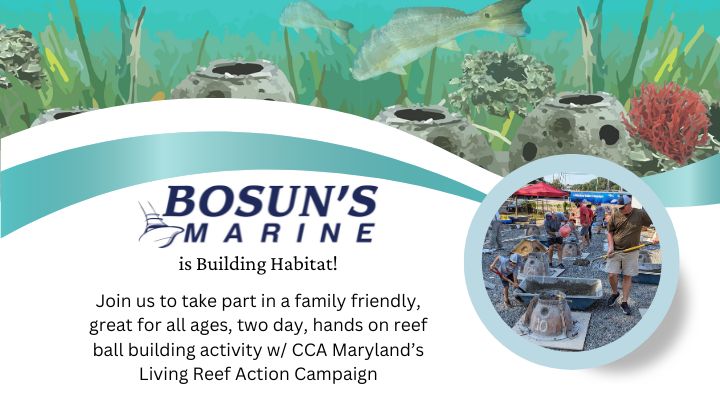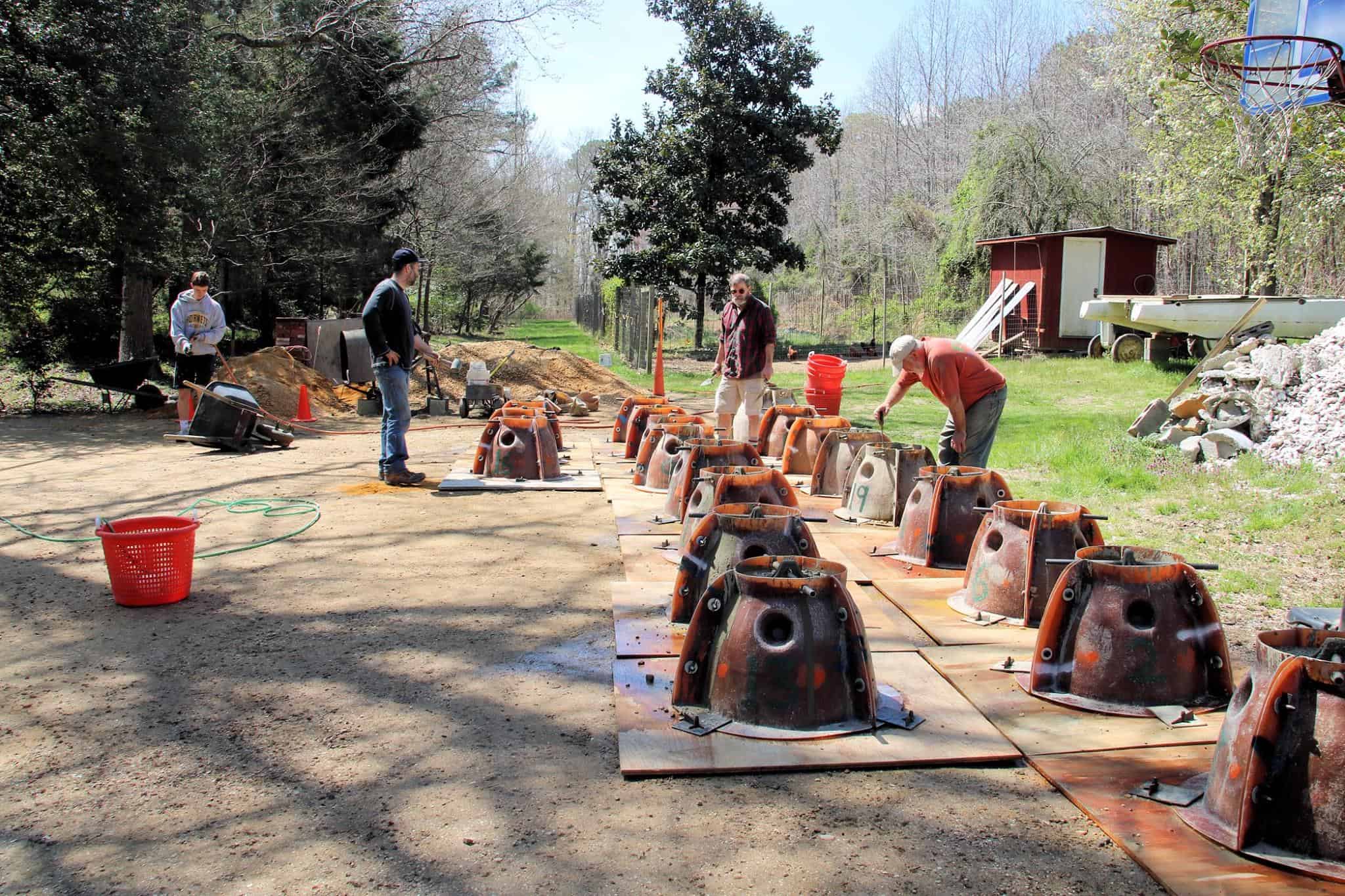
Join us at Bosun’s Marine to build reef habitat for the Living Reef Action Campaign.
On Day 1, reef ball builders will work in teams of 3-4+ to assemble molds, inflate buoys, then mix concrete that will form a reef ball.
Day 2 participants will take the reef ball mold apart, revealing the final product.
Reef Ball Build FAQs
Reef balls are a specially designed artificial reef unit that are used worldwide to build and restore reef habitat. Here in the Chesapeake, reef balls provide important three-dimensional habitat for oysters and many other filtering organisms to attach to. They also provide hollow structure for juvenile fish and crabs to hide from predators. Yes, it’s those predators we pursue as anglers, so reef balls also make some great fishing spots too.
RSVP
Let us know you're attending


